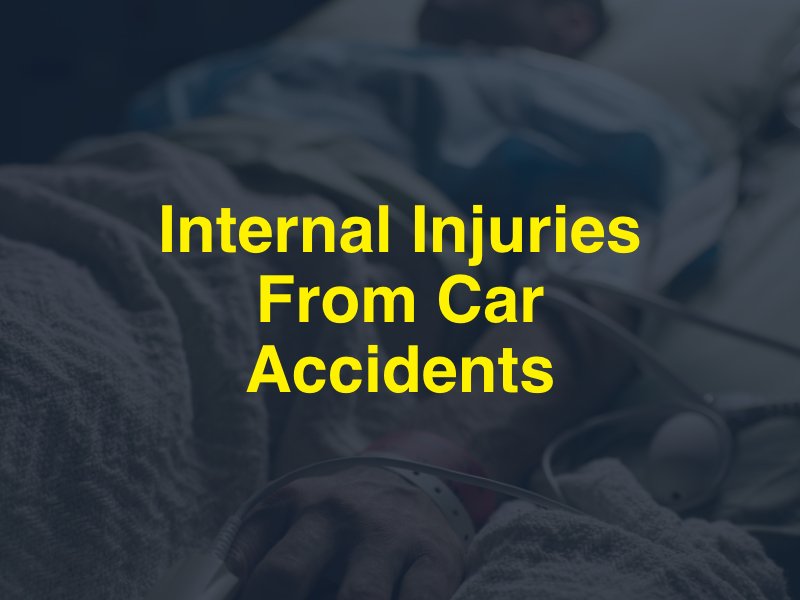Car accidents can have devastating effects on the body, leading to various internal injuries that might not be immediately apparent. Unlike external wounds, symptoms of internal injuries often don’t show up right away but can have serious long-term implications for health if left unexamined or untreated. Understanding the signs and potential consequences of these types of injuries is crucial in ensuring proper medical care and appropriate compensation following an accident.

Common Types of Internal Injuries in Car Accidents
Car accidents can lead to various internal injuries that may develop as a result of impact and trauma. Recognizing these injuries is vital for seeking timely medical treatment. Common ones include the following:
- Organ Damage: Impact from collisions can cause severe harm to vital organs, such as the liver, kidneys, spleen, or lungs due to blunt-force trauma.
- Internal Bleeding: This condition involves blood loss within the body and frequently arises from blunt force trauma resulting from the accident. It may not be externally visible, but can be incredibly dangerous and even fatal if not identified and treated.
- Traumatic Brain Injuries (TBIs): A blow to the head during an accident can cause swelling or bleeding inside the brain, leading to potentially life-altering consequences if not addressed quickly.
- Rib Fractures and Punctured Lungs: Broken ribs can puncture the lungs during an accident, resulting in breathing difficulties or even a collapsed lung. This situation may lead to serious respiratory issues that require immediate attention.
- Abdominal Injuries: Damage to the stomach or intestines often occurs from seatbelt compression during a collision. These injuries can have severe complications without prompt medical intervention.
If you’ve experienced any of these injuries, you may be entitled to financial compensation from the party responsible for the accident.
Symptoms of Internal Injuries to Watch For
Being aware of internal injury symptoms is crucial. These most often include the following:
- Severe pain in the abdomen, chest, or head: Intense and unexplained pain could signify organ damage or bleeding internally, requiring evaluation.
- Dizziness, fainting, or confusion: These signs might suggest internal bleeding or a traumatic brain injury – both conditions necessitate emergency treatment.
- Shortness of breath or difficulty breathing: If you experience wheezing sounds and have trouble catching your breath after an accident, it could indicate an issue such as a perforated lung.
- Swelling or bruising in the torso: Noticeable swelling or discoloration around your abdomen, chest, or sides can be indicative of internal bleeding. Immediate medical examination is necessary to determine the extent of injury.
- Vomiting blood or blood in urine/stool: The presence of blood in vomit, urine, or stool requires urgent attention as it may signal severe internal injuries that could lead to life-threatening complications if untreated.
Recognizing these symptoms early and seeking prompt medical care plays a significant role in addressing any potential complications as well as recovering compensation you deserve for your injuries.
If you have questions about a car accident claim or what you should do after suffering an internal injury, working with a personal injury lawyer is an important step. Contact us today to schedule a free consultation.
